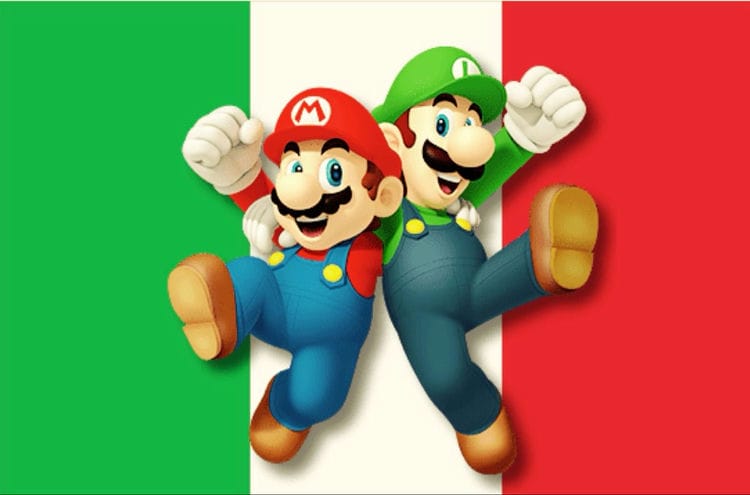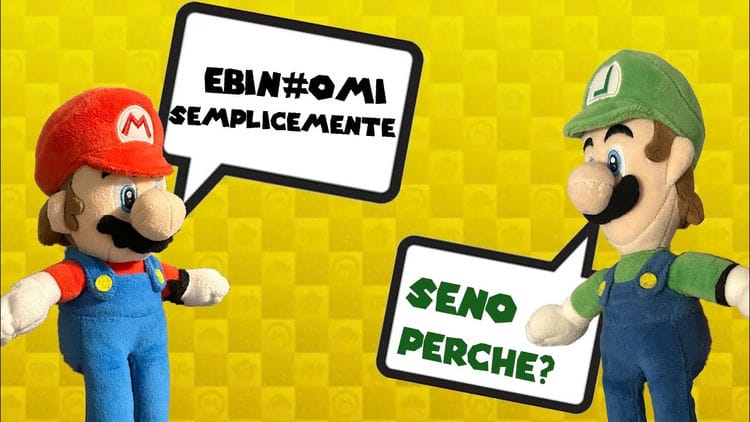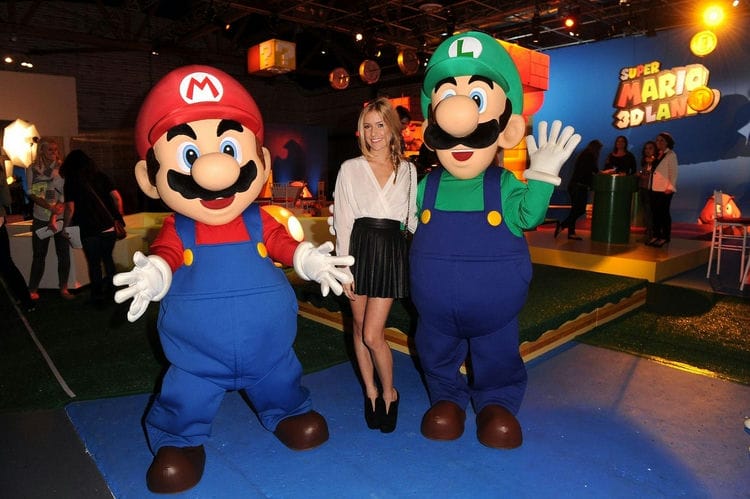MOVIE & LIFESTYLE NEWS
Are Mario and Luigi Italian? Discovering the Cultural Roots of Nintendo’s Iconic Brothers
If you grew up playing video games, chances are you’ve encountered the iconic duo, Mario and Luigi. But one question often arises among fans: are Mario and Luigi Italian? Let’s find the answer with AlibayTrendy Store now
Are Mario and Luigi Italian?
The story of the iconic brothers Mario and Luigi traces its roots back to the early 1980s, a pivotal era for Nintendo and the gaming industry. The journey began with the release of “Mario Bros.” in 1983, but the groundwork was laid a couple of years earlier.

Shigeru Miyamoto, a visionary game designer, introduced a character named “Jumpman” in the 1981 arcade game “Donkey Kong.” This simple yet compelling platformer marked the debut of the character who would later become Mario. As “Jumpman,” he was tasked with rescuing a damsel in distress, an archetype typical of the time.
Two years later, with the release of “Mario Bros.,” Jumpman was officially renamed Mario, and his backstory was expanded to include a brother, Luigi. The new game featured the brothers in a shared adventure, tackling various creatures in an underground setting. This was also the first game to establish Mario and Luigi’s roles as plumbers, a key aspect of their Italian identity.
The Italian heritage of the brothers is reflected in several elements of the game and subsequent media. Their names, Mario and Luigi, are quintessentially Italian, evoking a sense of classic European culture.
Mario’s distinct mustache and his red plumber’s cap have become iconic, adding to the characterization that aligns with Italian-American stereotypes of the 1980s. This was an era when depictions of Italians in American media often included references to family, food, and trades like plumbing.
The theme of plumbing and pipes, a central element in many Mario games, contributes to the Italian identity of the brothers. The underground levels filled with pipes and the constant flow of water reinforce the idea that these characters are plumbers, a common occupation among Italian-Americans in that era.
The cultural connection is further solidified in later adaptations, including animated series, comics, and even the 1993 live-action film “Super Mario Bros.,” where the brothers are portrayed as Italian-Americans from Brooklyn, New York.
Italian Heritage in the Games and Media
The Italian heritage of Mario and Luigi goes far beyond their names and professions, extending into various elements within the games and other forms of media. In the Mario universe, the brothers frequently interact with features that are emblematic of Italian culture, creating a unique connection between their adventures and their heritage.

For example, the constant use of pipes and underground tunnels throughout the games is more than just a game mechanic; it’s a nod to the brothers’ roles as plumbers, a common trade among Italian-Americans, particularly in the bustling urban landscapes of New York City.
These elements are seamlessly woven into the level design, giving players a sense of navigating the underground sewer systems commonly associated with cities like Brooklyn, reinforcing the Italian-American background of Mario and Luigi.
The colorful outfits worn by the brothers further highlight their Italian roots. Mario’s iconic red cap and shirt, paired with blue overalls, and Luigi’s green attire, offer a vibrant aesthetic that aligns with the lively, colorful imagery often associated with Italian culture. This choice of colors and styles creates a sense of identity and distinctiveness that resonates with fans, contributing to the brothers’ iconic status.
Beyond the video games, the Italian influence continues to be a key aspect of their portrayal in other media. The 1993 live-action movie “Super Mario Bros.” takes a direct approach to their heritage, depicting Mario and Luigi as Italian-American plumbers from Brooklyn. This urban setting, with its unique mix of cultures and communities, further cements the idea that the brothers are deeply rooted in Italian-American traditions.
The impact of this representation is also seen in other adaptations, such as animated series and comics. In these portrayals, the brothers often speak with Italian accents, reinforcing their cultural identity. The references to Italian traditions, family values, and even the occasional culinary nods to pasta and pizza create a consistent and recognizable Italian-American backdrop.
Why It Matters to Fans
Grasping the origins and cultural background of Mario and Luigi enriches the overall gaming experience, transforming what might seem like simple platformer adventures into stories with deeper meaning. When fans learn about the Italian-American roots of these beloved characters, it fosters a unique connection, making the gaming experience more engaging and immersive.

This deeper understanding brings an additional layer of enjoyment, allowing players to appreciate the cultural nuances that shape the world of Mario. For many players, the Italian-American influence in Mario and Luigi’s universe provides a sense of identity and heritage that resonates on a personal level.
The brothers’ strong family ties, their hardworking and resourceful nature, and their distinctive Italian accents reflect values and traditions that are familiar and comforting. As players guide the brothers through their adventures, they experience a sense of camaraderie, as if they are joining a familiar journey rooted in shared cultural elements.
The appeal of Mario and Luigi’s Italian-American background extends well beyond the games themselves, resonating with players from various cultures and backgrounds. This cultural influence contributes to the sense that these characters are not just products of a fictional universe but are connected to real-world traditions and communities.
The representation of Italian-Americans, albeit in a whimsical and fantastical setting, offers a touchstone for players who may have similar backgrounds or who simply appreciate the warmth and vibrancy of Italian culture. Moreover, the Italian-American influence has become a key part of the broader cultural legacy surrounding the Mario franchise.
Over the years, Mario and Luigi have transcended their roles as video game icons to become cultural symbols, appearing in movies, animated series, merchandise, and more. This widespread recognition underscores the significance of their Italian-American roots, which have helped the characters endure and thrive in the public consciousness.
In conclusion, the Italian heritage of Mario and Luigi contributes to the unique charm and global appeal of the franchise. Understanding their roots adds depth to their story and makes their adventures in the Mushroom Kingdom even more engaging. If you’re a fan of these iconic characters, why not celebrate their Italian influence with style?
Check out the exclusive Mario Hawaiian Shirt at AlibayTrendy Store. It’s the perfect addition to your wardrobe, combining comfort and a touch of gaming nostalgia. Don’t miss out—grab your Mario Hawaiian Shirt today and wear your fandom with pride!
